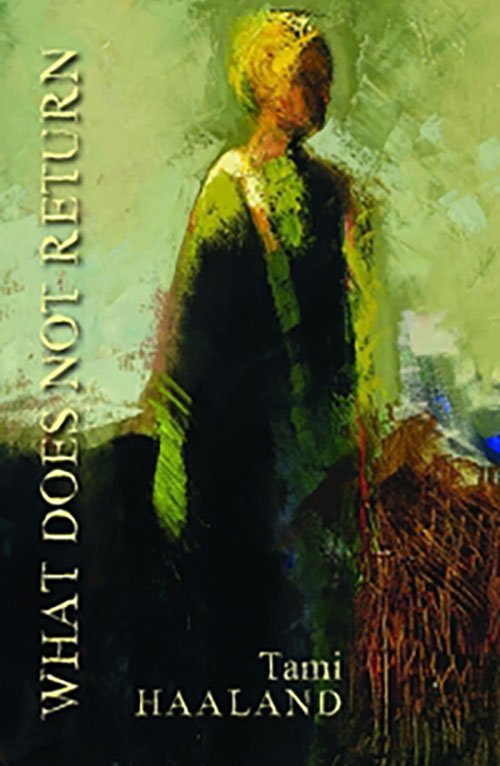REVIEW OF TAMI HAALAND’S WHAT DOES NOT RETURN
by Lee Anne Gallaway-Mitchell
Tami Haaland’s poetry collection What Does Not Return (Lost Horse Press, 2018) captures the rhythms of caregiving and examines how acts of care shape our awareness and experience of time, memory, and history. Specifically, Haaland’s collection hinges on the narrative of caring for a mother with dementia and mourning her death. However, as the speaker of Haaland’s poems comes to realize, death is not the endpoint of caregiving.
The opening poem, “She Was So Tiny,” describes the timeline of caregiving, one full of contradictions:
It was a long while and it was yesterday.
It was a year and a mile, a daily escape,
a treat, a burden, a weight.
The scope of experience in the collection extends beyond the intimacy of the home and a care facility into the world at large. Maggie Nelson, in On Freedom: Four Songs of Care and Constraint, writes that “in caring, time is folded: one is attending to the effects of past actions, attempting to mitigate present suffering, and doing what one can to reduce or obviate future suffering all at once.” Haaland’s poems are testament to these acts of care. While at first glance the collection documents a mother’s decline and death from Alzheimer’s, it’s about worlds of care, about the care we give to others and the care we take with the environment and the histories we inhabit and inherit.
Four poems in the middle of the collection address concerns covered in Collateral. In “Arsenal,” missile silos, though jarring, get written into the landscape as inevitabilities:
…the missiles became
the gun in the garage, the bullets in the basement,
almost hypothetical. Just the weapon
we walked around on our way to growing up.
The theme that we come to accept what’s always there—even when it’s a reminder of a threat—continues in “Practice”, in which the family barn is a practice site for bombing. This also becomes as routine as birth and death:
It would be an easy hit, and if this
were war, I could be the girl walking
from a field, fearing my house might explode.
This violence can be imagined, anticipated even, in the same way the speaker can imagine her mother’s inevitable death, given the time of a slow decline. This leaves the speaker to wonder “what’s inside, if not a bomb, / what complicated machinery.” These poems, occurring together, might seem out of place in a collection about the intimate nature of care, encounters with the natural world, and the consolations of art, but it’s not. It’s part of the world we inherit, where we experience these moments of illness and care, death and loss, where time keeps going even as our relationship to them sometimes changes.
“Noon Lockdown,” which appeared in the Fall 2017 issue of Collateral, juxtaposes the worlds of the classroom and the speaker’s mother’s care facility. She must confront the precarity of a violent world when comforting and protecting her terrified students during an active shooter scare. Even as it turns out to be a false alarm, the speaker carries the experience with her when she visits her mother. She arrives at an uneasy balance between the experience of the lockdown and what she has to do in caring for her mother:
Later, I visit my mother whose mind
loses everything, whose mind has turned
to lace. I hold her hand as if
there is nothing to say. We rock
in our chairs with the women. I don’t
tell her a thing she will forget.
Though the speaker does not share the story with her mother, the memory of the lockdown and the visit with her mother can exist in the same space. Care continues despite of or perhaps in answer to living in a world of precarity and threat.
In this review, I’ve focused on poems that follow themes Collateral is especially interested in, but the images in this incredibly cohesive and wise collection as a whole are evocative of the natural world and the states of care between people and landscapes, in particular the prairies of the high plains. Haaland’s poems figure care through the consolations of art and nature and the objects that remind us of people and places, of times long past. However, her poems resist nostalgia by joining our hard-won survival with our vulnerabilities, where living and caring are acts of courage. When personal and collective losses rearrange us and our world feels unsafe, sometimes caring itself is all we can do.
Lee Anne Gallaway-Mitchell lives and writes in Tucson, where she received an MFA in creative writing from the University of Arizona. Her essays and poems can be found in Arts & Letters, Bat City Review, and The Florida Review, among others.

